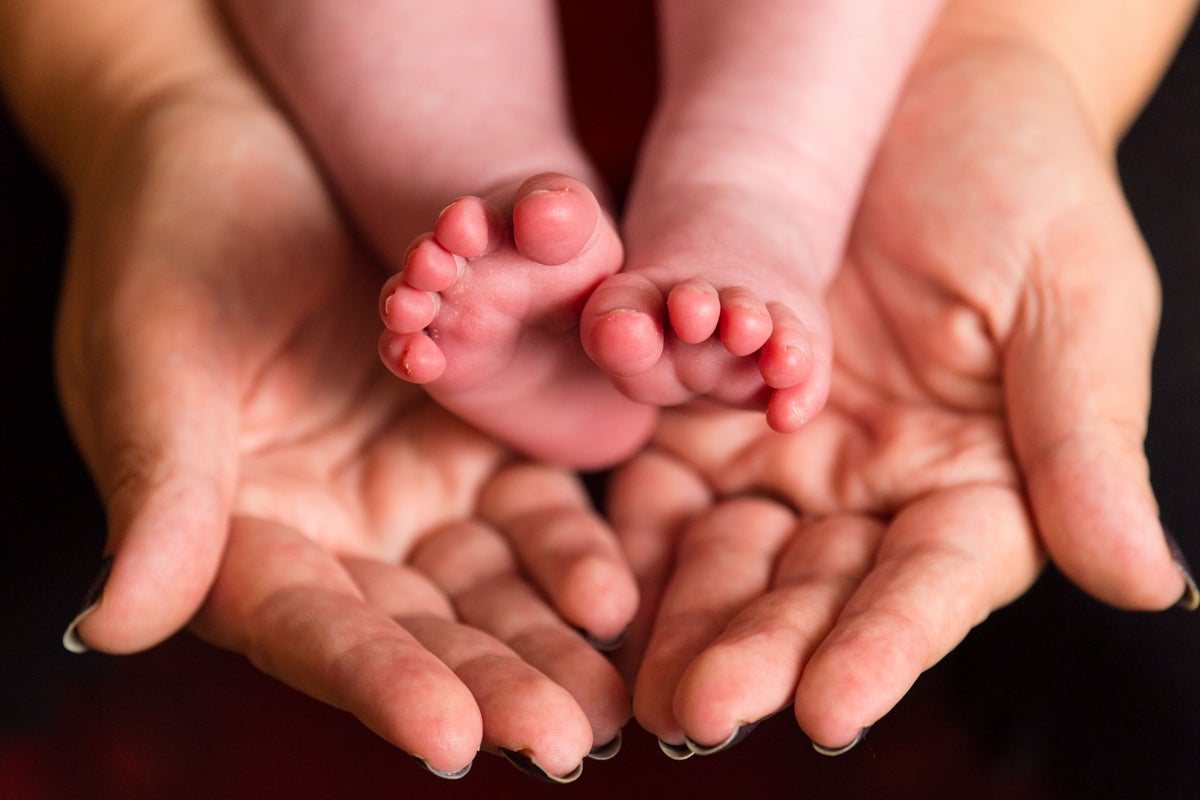
Newborn babies could be more at risk of contracting a bacterial infection carried by their mothers than previously thought, researchers have warned.
Group B strep, or GBS, is a common bacteria that lives in the vagina or rectum and is usually harmless.
However, it can be passed by pregnant women to their newborn babies during birth, leading to complications such as sepsis or meningitis.
According to NHS England, GBS rarely causes problems but babies can fall ill after contracting the infection in about one in 1,750 pregnancies.
A study by a team from the University of Cambridge and Rosie Hospital, Cambridge University Hospitals NHS Foundation Trust, found the estimate could be far greater.
This important study highlights the extent of the devastating impact group B Strep has on newborn babies, and how important it is to measure accurately the number of these infections— Jane Plumb, Group B Strep Support
They claim one in 200 newborns are admitted to neonatal units with sepsis caused by GBS.
The team made the claim after reanalysing data from its previous study which found GBS in the placenta of about 5% of women prior to labour.
The cohort included 436 babies born full-term, with the team confirming their findings in a second group of 925 pregnancies.
Jane Plumb is chief executive of the charity Group B Strep Support. She co-founded the organisation with her husband Robert in 1996 after losing their middle child to the infection.
She said: “This important study highlights the extent of the devastating impact group B Strep has on newborn babies, and how important it is to measure accurately the number of these infections.
“This research suggests that the number of preventable infections may be ten times higher than previously thought, each one having a significant impact on babies and their families.
“Inadequate data collected on group B Strep is why we recently urged the Government to make group B Strep a notifiable disease, ensuring cases would have to be reported.
“Without understanding the true number of infections, we may not implement appropriate prevention strategies and are unable to measure their true effectiveness.
Using this new test, we now realise that the clinically-detected cases of GBS may represent the tip of the iceberg of complications arising from this infection— Professor Gordon Smith, University of Cambridge
“We need to do all we can to protect the most vulnerable in our society, and for the prevention of group B Strep infections robust data collection is central to this mission.”
Pregnant women are not routinely screened for GBS in the UK and only usually discover they are carriers if they have other complications or risk factors.
Dr Francesca Gaccioli, of the department of obstetrics and gynaecology at the University of Cambridge, said the team’s findings – published in Nature Microbiology – “profoundly changes the risk/benefit balance of universal screening”.
The research team has developed a new polymerase chain reaction (PCR) test which looks for the presence of the bacteria.
Professor Gordon Smith, head of obstetrics and gynaecology at the University of Cambridge, said: “Using this new test, we now realise that the clinically-detected cases of GBS may represent the tip of the iceberg of complications arising from this infection.
“We hope that the ultra-sensitive test developed by our team might lead to viable point-of-care testing to inform immediate neonatal care.”
The study was funded by the Medical Research Council and supported by the National Institute for Health Research (NIHR) Cambridge Biomedical Research Centre.







